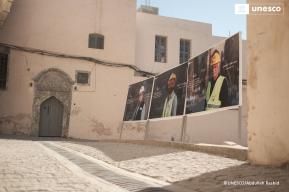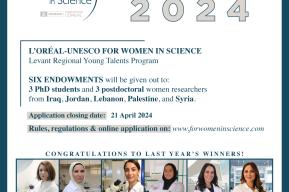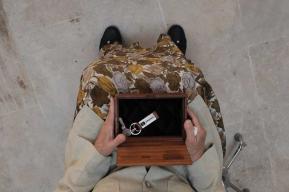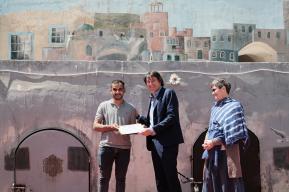News
Music in Mosul, more than just a tune
As part of its flagship initiative to Revive the Spirit of Mosul through heritage, cultural life and education, UNESCO is in the early stages of implementing a programme to Revive the Musical Traditions of Mosul.


“Music is life,” said Ehsan Akram Al Habib, a 39-year-old violinist from Mosul who saw the beauty of music robbed from his city. “Mosul, with the diversity of its religions and civilizations, is a mosaic that represents all of Iraq.”
Revive the Musical Traditions of Mosul seeks to refocus public attention on the diversity of the musical traditions of Mosul. The province of Ninewah in Iraq is home to many religious, cultural and ethnic minorities, each with their specific songs and musical forms, and even musical instruments that find themselves at the intersection of history, musical expression and tradition. “We are a people of love, of beauty, of civilization, of music. Music is a world of beauty for all of humanity, and it is a major part of Mosul and of Iraq,” said Ehsan.
The programme is part of a project entitled “Listening to Iraq”, which UNESCO is implementing in Mosul with our partner “Action for Hope”, an NGO that was created in 2013 to empower vulnerable populations by celebrating cultural diversity and strengthening social cohesion, as well as recreating the vitality of the arts scene in Mosul and in Iraq in general. “By bringing back music to Mosul,” said Ehsan, “we are trying to bring back life to our city.”
UNESCO has also undertaken preliminary steps to research and map diverse musical practices, building on previous efforts by Iraqi musicians. This will lead to identifying masters of at least four different musical practices who are able to perform and teach. This phase will be followed by a seminar to discuss teaching methodologies and performance styles among professional musicians and music educators from Iraq and other countries in the region. Finally, a training programme for young musicians in these different musical practices will be established.
“Action for Hope” is a non-profit organization that is led by Basma El Husseiny, a member of UNESCO’s expert facility for the implementation of the 2005 Convention on the Promotion and Protection of the Diversity of Cultural Expressions.
This project has been financed by UNESCO's Heritage Emergency Fund through the generous support of the following partners: the Qatar Fund for Development, the Kingdom of Norway, the Government of Canada, ANA Holdings INC., the Principality of Monaco, the Kingdom of the Netherlands, the Republic of Estonia, the Grand Duchy of Luxembourg, the Slovak Republic, the Principality of Andorra, and the Republic of Serbia.






